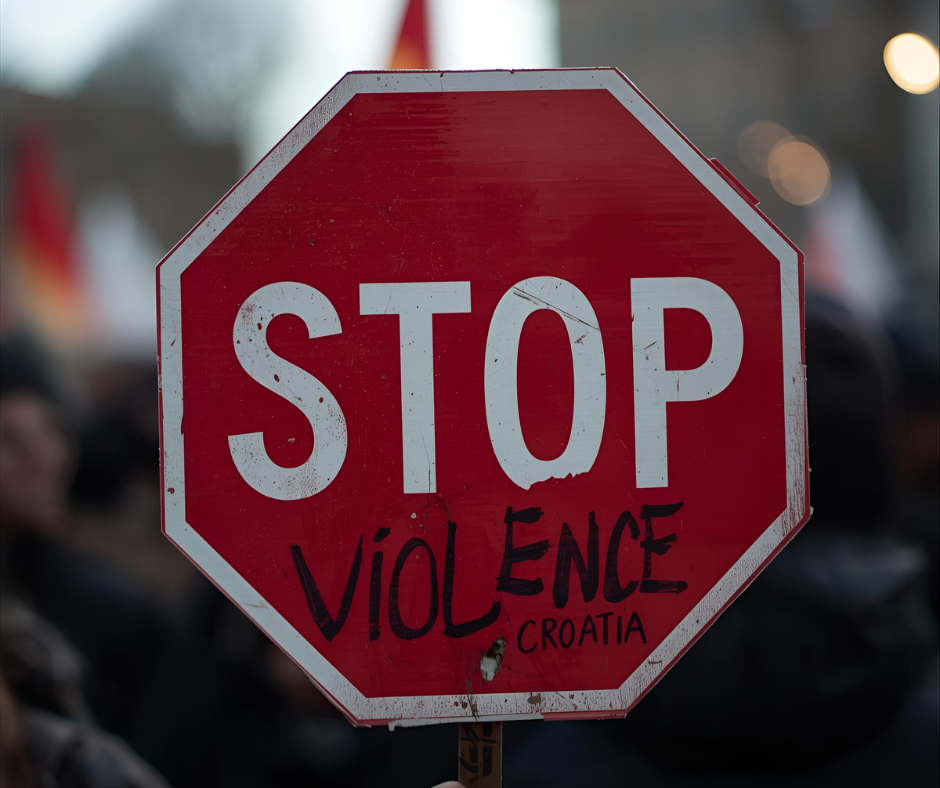Published 11.09.2025. | Nina Sauerborn

Osijek: a city of closure, silence and ignoring – or a city of solidarity, humanity and concrete action
Last night's attack on a delivery man – a foreign citizen – in Osijek deeply shook and worried us. This is not just an isolated incident; This is a strong alarm that should make us all question – not only our attitude towards those who come to our city, but also the values on which we build the local community. The Centre for Peace – Osijek hereby strongly condemns this attack and calls on the competent institutions for an urgent and transparent investigation, which will include the question: whether this is a hate crime?
What further worries us is the possibility that the motive for this violence was intolerance or prejudice towards foreigners – people who live, work and contribute to society here. If this is the case, then we are not talking only about an individual act of violence, but about a symptom of a deeper social problem that cannot and must not be ignored.
Unfortunately, the data shows that this case is no exception. In the first seven months of 2024, as many as 326 crimes against foreign nationals were recorded in Croatia, with a total of 527 identified victims. It is worrying that the largest number of victims comes from the countries where most foreign workers in Croatia come from – Nepal, India, Pakistan and Bangladesh. 🇳🇵🇮🇳🇵🇰🇧🇩 For comparison, during the whole of 2023, only 83 victims from these countries were recorded, which indicates a dramatic increase in violence and a negative trend that threatens to escalate if not stopped in time.
It is particularly important to highlight the local context. More than 2,600 foreign workers currently live and work in Osijek-Baranja County, while at the level of Croatia, by August 2025, this number reached over 124,000 people, almost half of whom are from Asian countries. Despite this growth, the Republic of Croatia still does not have an up-to-date migration or integration policy – the document on migration policy expired in 2016, and the document on integration policy in 2020. This further shifts the responsibility to local communities, which are generally not prepared for the challenges that such migrations bring.
However, it is important to remember that the City of Osijek was the first in Croatia to develop a local integration plan for third-country nationals, through the EU project INTEGRA. Unfortunately, this plan was never adopted, nor was it politically supported and implemented, thus missing the opportunity to proactively manage coexistence and integration in the community.
Today, we are facing the consequences of that inaction. At a time when the number of foreign workers is continuously growing, and the local population often comes into contact with them through everyday situations – at work, on the street, in the neighborhood – the lack of information, understanding and preparation opens up space for fear, prejudice and hatred.
That is why this attack is more than an individual case – it is a wake-up call. Urgent action is needed: adopt and implement local integration policies, work on informing and empowering the community, counter hate speech and promote a culture of respect and diversity. Only in this way can we build a society in which all citizens – regardless of their origin – are safe, respected and accepted.
Foreign workers are not a threat. They are people who contribute to our everyday life with their work – they bring us food, clean our streets, work on construction sites, in warehouses, hospitals and restaurants. They deserve what each of us wants for ourselves: dignity, safety and equal treatment.
Today, more than ever, we have to decide what kind of city we want to be. A city of closure, silence and ignorance – or a city of solidarity, humanity and concrete action.
We choose the latter.